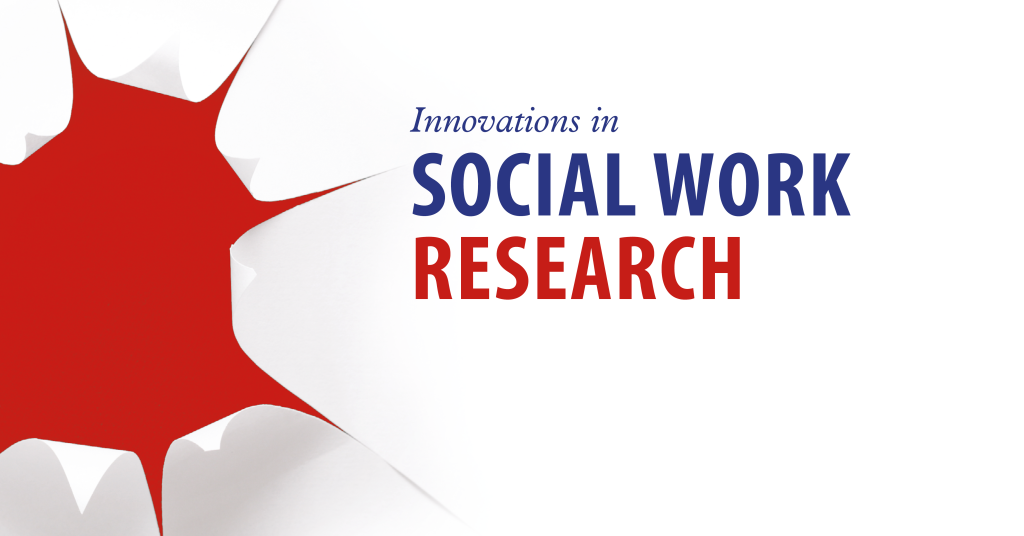Co-editor of Innovations in Social Work Research, Aidan Worsley, offers some reflections on the function of research in the development of social work education.
Having recently completed my role as co-editor of Innovations in Social Work Research, it seems like a useful time to offer some reflections on where research features in the development of social work education. The chapters of the book have identified innovative research practices around areas as diverse as new technologies, visual methods, dissemination and user involvement – amongst a range of wonderful and inspiring contributions. The whole presents a lively and creative sector containing what I believe to be the vanguard of a golden generation of social work researchers thinking imaginatively about how to explore the social world around them and influence policy and practice.
And yet, there are also elements that are less encouraging. There is a growing concern with the disconnect between professional education and research. On the one hand we have social work academics who, as evidence sadly demonstrates, are finding it easier to be successful in their research careers when they are not engaged in direct teaching. This has to be understood in an open way – universities, of course, value high quality publications in journals and high yields on grant capture projects – and no one can be in two places at once. Indeed, funding and league tables are dominant forces in Higher Education. And whilst a wide variety of practices exist across the sector and ‘full time’ researchers are indeed just that – a slow but steady drift away from the lecture theatre can be observed. This can be coupled with what appears to be an orientation away from pedagogic research related to the professional area. Funders and academics are looking less often at what makes social work education effective. This vacuum has, and will continue to be, filled by untried and misunderstood approaches. We all need to understand these conflicting demands – but try to redress that balance.
On the other hand we also need to consider the narratives that surround policy development of social work education. Croisdale –Appleby in his 2014 report on social work education talked of the social worker as a ‘practitioner, professional and social scientist’ – such an imaginative and forward thinking notion. But the resolution of the contradictions of his and Narey’s reports remains – 18 months later – a forlorn hope. Policy makers appear to have lost (by carelessness or design) the awareness that research belongs in social work education. The recent development of Teaching Partnerships simply didn’t engage with the notion- despite its avowed intent to be about quality. Research as a word didn’t appear in the guidance. How can a high quality professional education not be concerned with research? Its emphasis was on academics being qualified as social workers to the exclusion of the range of knowledge (or indeed teaching ability) they might present. And knowledge appears to be only valued in so far as it relates to the practice of a (Local Authority) social worker.
And this, in turn, does the greatest disservice to the profession. Surely we know that high quality professional practice requires the practitioner to generate new knowledge and understanding in the myriad of complex scenarios they encounter. Connections should be made between the shared experiences they encounter of the users of the service they provide and those communities with which they interact. These connections form new understandings and, in turn, improve delivery. And yes, this also requires the support of the research community to reach out and work with practitioners on these lines of thinking – and that this is valued by all stakeholders – I’m looking at you middle managers! But this has to start with an awareness that new knowledge matters as much as received knowledge – and social work education needs to ensure it captures this spark of the professional role in its delivery of teaching- because the light is going out.
So this blog ends with a plea to all those reading this: research matters, research improves people’s lives. Managers in services – make sure your staff have opportunities to hear about and engage with research. Policy makers – don’t lose sight of the role research plays in professional education. Academics – reach out to practitioners and students alike with your research and make sure it gets heard in the lecture theatres of universities and the staff meetings of practitioners. And students reading this blog – find out who is doing interesting research in your institution, or beyond, and ask your programme to invite them along. Ask to learn more! In the meantime, the chapters of this book will hopefully be one offering of dissemination so that readers from across all these groups can see what there is on offer here – and what we must ensure the profession and its users doesn’t miss out on.
Aidan Worsley BA, MA, MPhil, FRSA is a Professor of Social Work and Executive Dean of the College of Business, Law and Social Sciences at the University of Central Lancashire and. He is a qualified, registered social worker, with a background in criminal justice work and wide experience as an academic manager, external examiner and active researcher in areas of social work education, social work and service user led research, practice learning and interprofessional learning and teaching. He has provided training and consultancy to a wide range of organisations across the health and social care sectors.
Learn more about Innovations in Social Work Research
